Liam Fox says Trump 'very keen' on trade deal
- Published
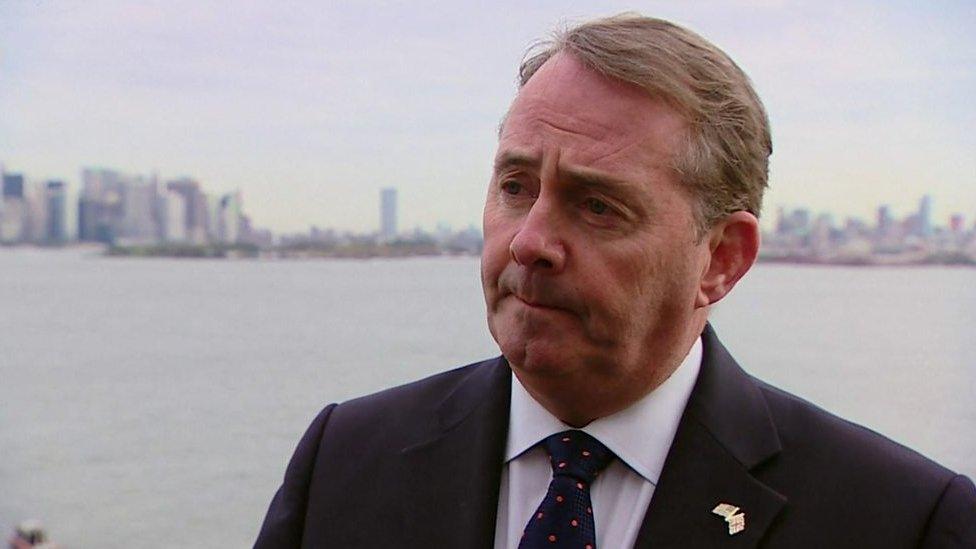
International Trade Secretary Liam Fox has told the BBC he believes US President Donald Trump is "very keen" to do a trade deal.
Mr Fox was speaking in New York, where he was in town to promote the ties between the two countries.
His comments come just days after the Trump administration told Congress it planned to start formal talks with the UK after it leaves the European Union.
The prospects for a new agreement have already faced scepticism.
US President Donald Trump has taken an aggressive "America First" approach to negotiation and the two sides are likely to disagree on issues such as US farm exports and chemical standards.
In a BBC interview, Mr Fox said he believes the UK is in a strong position, due in part to the the close military ties between the two countries.
"Our trade relationship is part of a wider relationship," Mr Fox said. "There is a unique relationship with the United States."
Mr Fox spoke on board HMS Queen Elizabeth - the Royal Navy's flagship aircraft carrier - where a select group of business leaders from firms such as BAE Systems and Lockheed Martin were welcomed on board for a day of talks about cyber security.
In a brief address, Mr Fox emphasised the connections between security and trade.
He also had a bit of pomp planned for later in the evening: the hoisting of the trade department's flag on a navy vessel for the first time in some 200 years.
"Trade and security are linked," he told the crowd of more than 100 people. "Where better to be discussing the interplay of these relationships?"
But analysts in the US warned that US President Donald Trump has displayed little regard for historic alliances.
This year he imposed tariffs on foreign steel and aluminium, including from close friends such as the EU and Canada. He has also threatened to levy tariffs on foreign cars and car parts.
"The president has shown when it comes down to some of these issues, it doesn't matter if you're an ally or not," said Daniel Hamilton, a professor at the Johns Hopkins School of Advanced International Studies in the US.
Liam Fox also discussed Teresa May during his New York visit
Professor Hamilton said it could be years before a new deal is actually presented, given the constraints imposed by Brexit and other considerations.
"This is good politics and good messaging [by both countries] but there's not much substance behind it," he said.
Marjorie Chorlins, the executive director of the US-UK Business Council at the US Chamber of Commerce, also said she does not think the famed "special relationship" between the US and UK will factor into the president's thinking.
"I don't think the UK will be treated any differently than other allies in that regard," said Ms Chorlins, also vice president for European affairs at the chamber.
Others were more optimistic.
Theodore Bromund is a senior research fellow at the Heritage Foundation, a conservative think tank in Washington.
He said he expects serious talks to start as soon as April - even if a new deal will not be able to go into effect immediately.
Mr Trump faces political pressure to prove he can make trade deals, not just break them, as his tariffs spark retaliations that have hurt key constituencies such as farmers.
And despite his tough rhetoric, Mr Trump has so far been willing to sign off on agreements - such as a revised North American Free Trade Agreement - that represent only modest change, Mr Bromund said.
The administration "certainly sounds different, but is it in practice much different?" he said.
The UK's status as one of the world's largest economies, as well as the billions in trade and investment between the US and UK, also make the logic of a deal inescapable, Mr Bromund added.
"I would never recommend to the UK that it simply rely on US good will for its trade policy," he said.
But "the structural advantages that the UK has in dealing with the United States shouldn't be underestimated."
- Published17 October 2018
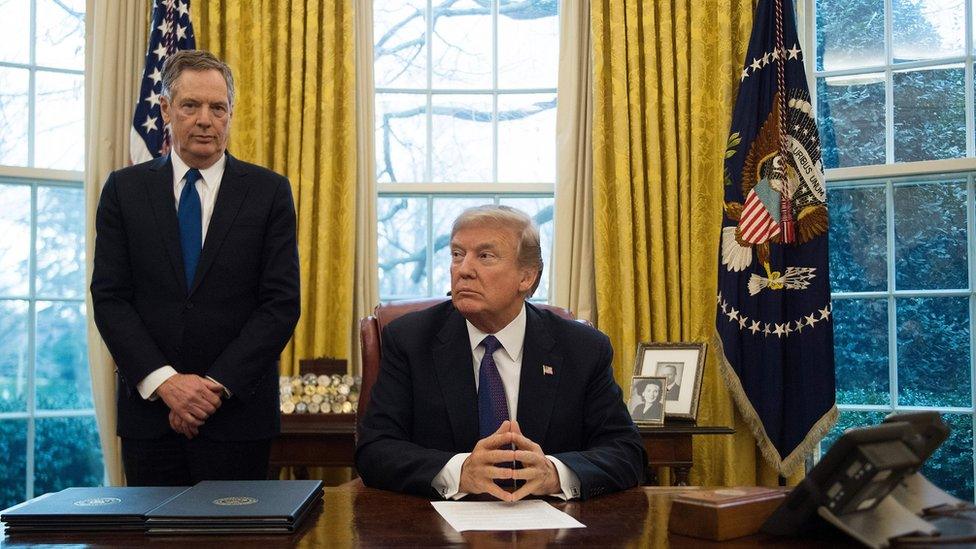
- Published12 July 2018
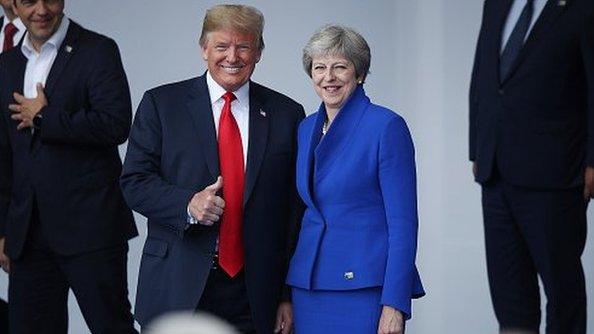
- Published18 September 2018
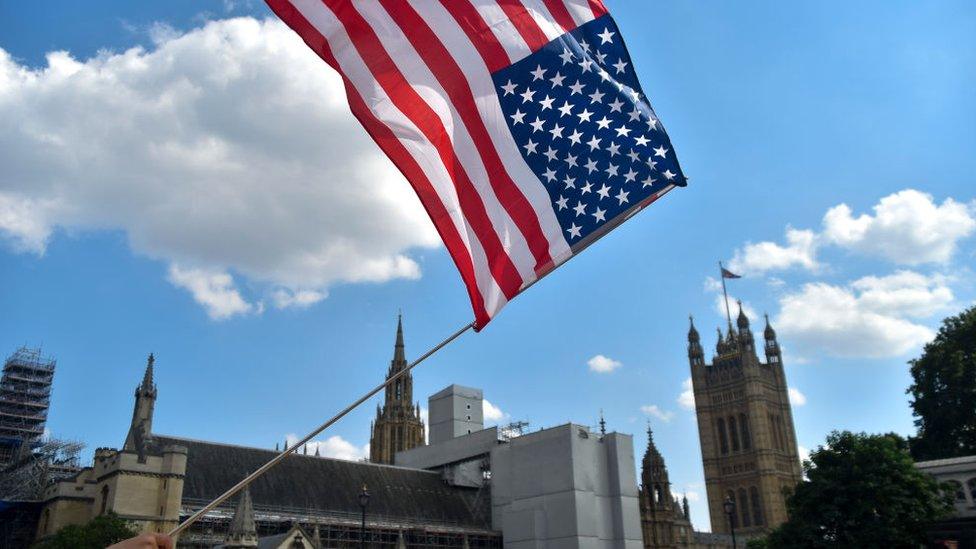
- Published12 July 2018
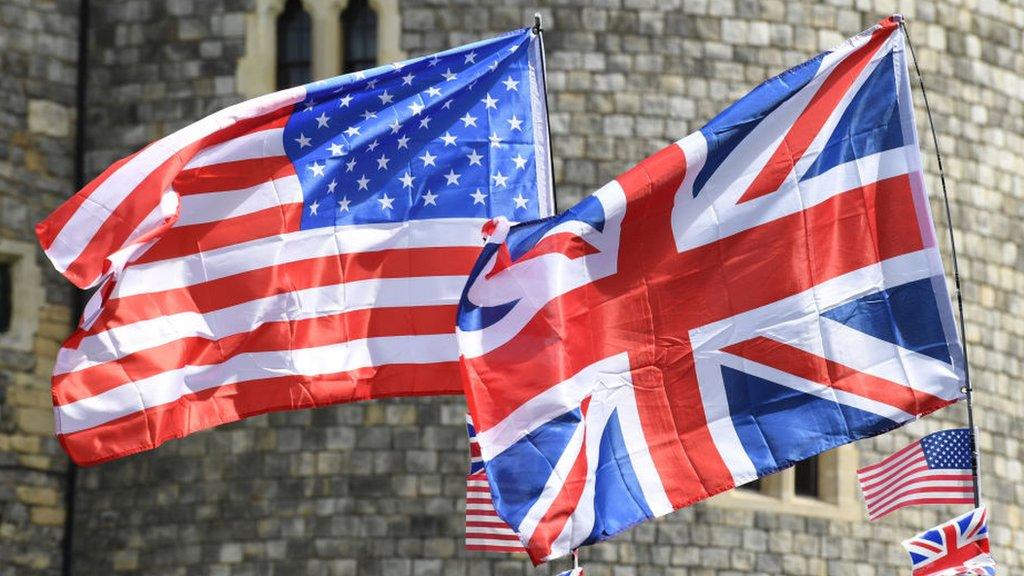
- Published22 October 2018
